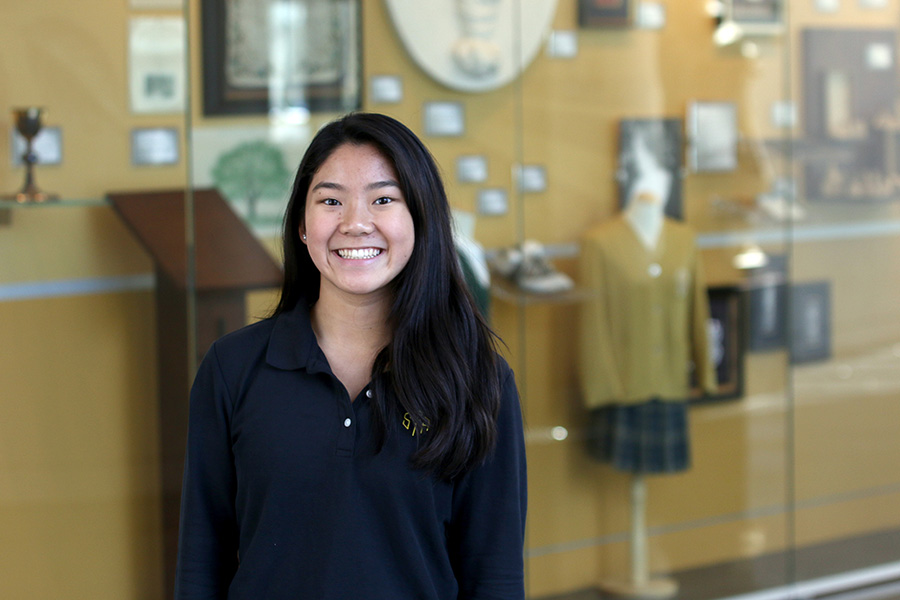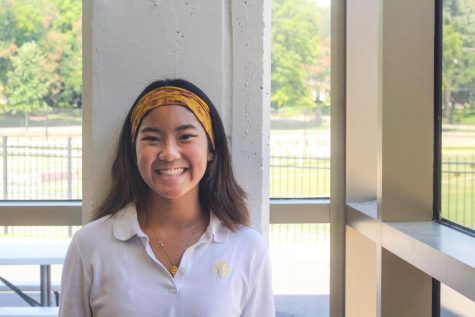Life as the token Asian girl
I am more than my Chinese stereotypes, but here’s what it’s like to be treated otherwise.
January 31, 2018
“Alright class, who wants to do England?” my third grade teacher asked. Half the kids sitting around me raised their hands. My nine-year-old self was excited to be assigned my first social studies project on a country of my choice. I was hoping to be the first one to raise my hand for New Zealand.
“Great, now who wants China?”
A second passed, then another. No one raised their hand. For a split second, I thought I saw my teacher’s eyes dart to me. My classmates turned to face me, waiting expectantly for my answer. When I gave no response, the other quiet Asian girl sitting across the room said she’d take it. This was a classic scenario Asians are far too familiar with.
From that day in third grade and on, I’ve noticed the way people expect me to be or not to be as the token Asian girl. I must want to be a doctor, I must speak Mandarin, I must know some karate moves, right? Little do they know that math is my worst subject, I’ve never tried eating dog and Mulan is not my favorite Disney princess.
I started noticing that my parents, like any good adoptive parents, would constantly try to expose me to my culture. They would take me to see lion dances, watch dragon boat races on the Plaza and eat at Bo Ling’s at least once a week. While I appreciated being around other Chinese folk, it felt forced, like I was required to enjoy the activities around me simply because I born in China. I knew that these activities would only feed into the stereotypes I had already been handed by the world.
Even though a decade has passed and the stereotypes I’m faced with have decreased, I am still confronted with racist remarks, assumptions and jokes today. A teacher might call me by another Asian girl’s name even though there’s only a few of us in a predominantly Caucasian school. I am looked to if we are discussing current events in class and I am expected to recount everything from China’s point of view. Multiple times I have had to hear that “my people” fabricated the hoax scientifically known as “global warming” with their “fake news.”
Every race has its own stereotypes, and with those stereotypes come racist remarks. For some reason, racist remarks against Asians are more acceptable to throw around than ones against whites or blacks. If a black man with an Algerian accent were to be speaking on the news for some reason, no one would laugh or make a joke about “running with elephants” because it’s offensive. However if an Asian man with a Chinese accent were to make an appearance on television, he would be the center of the laughing stock, people trying to replicate his accent and cracking the classic, “His parents dropped a pan down the stairs and named him Ching Chong after the sound.”
Part of the issue feeding into the stereotypes Asian-Americans face today is the lack of representation in the media. Many roles written for Asian actors in blockbuster movies are taken by white actors who might bring in more revenue. The parts left for actual Asian actors are either the sidekick best friend killed off in battle within the first five minutes, the awkward nerdy math genius that makes bizarre comments now and then or the exotic bikini-sporting chick hanging on the shoulder of the criminal billionaire.
I hate to break it to the world, but I am none of these things. God did not give me yellow-toned skin, black hair and small eyes to be reduced to anime, dumplings and Jackie Chan. As I’ve grown older I’ve become more motivated to actually speak out against the image I’m seen as daily, and I hope to help my peers understand the situation. My skin color may not be as much of a contrast to my black friends’, but I still face racial issues that shouldn’t exist in 2018.





Bill Rawson • Feb 7, 2018 at 7:22 am
Each week our journalism students find exemplary works from other student publications and share them with each other. One of them found and shared this piece, and I’m glad she did. Honest and thought provoking…. very nice work!
Maya Bair • Feb 6, 2018 at 6:57 am
Amy, this is so well-written and I’m so glad to see you speak out. This is so cool!!!
Lynn Barnett • Feb 3, 2018 at 5:44 pm
Amy,, keep on speaking up for your self and others, who, like you, need a voice and have yet found theirs.
Delaina Sanden • Feb 2, 2018 at 4:25 pm
I love this, Amy! You are wonderful!!
Brooke Fallis • Feb 2, 2018 at 10:35 am
Amy you’re so awesome
Jeffrey Nast • Feb 1, 2018 at 7:28 am
Eloquently written and well said. You are obviously rising above. Good for you.